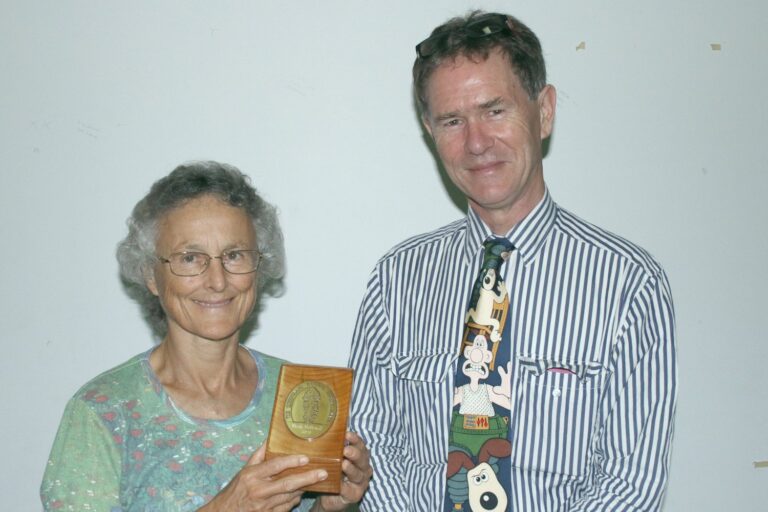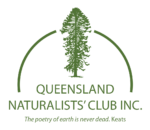
Queensland Natural History Award 2019 – Professor Carla Catterall
The Queensland Natural History Award is presented annually by the Queensland Naturalists’ Club Inc. to give recognition to persons who have made outstanding contributions to natural history in Queensland. The Queensland Natural History Award for 2019 was presented to Professor Carla Catterall.
Carla Catterall is an ecologist who has conducted academic work in the environmental sciences at Griffith University for the past four decades. She has designed and taught a range of University courses in natural history, ecological principles and methods, and their application to management and planning.
Carla Catterall & Neil FordyceResearch students working under her supervision have completed 78 theses with degrees awarded (32 three-year PhD/MPhil masters; 46 one-year Honours), plus four current enrolled PhD students.
Her research focuses on how free-living plants and animals respond to habitat change (including deforestation, fragmentation, reforestation and urbanisation) and how they might be encouraged to persist within landscapes used by people.
For the past 20 years she has led ongoing research into how strategic restoration can recover biodiversity and ecological process, especially in tropical and subtropical rainforests, and also has a particular interest in bird communities and bird-plant interactions.
Professor Catterall’s publications include 124 peer reviewed journal articles (13 published since 2015), 33 book chapters, and four books. Google Scholar metrics show 6,040 citations of Prof. Catterall’s work by other authors, averaging 29 citations per listing (career H-index 45; 25 since 2014). She was awarded the 2009 D.L. Serventy Medal for outstanding published work on birds in the Australasian region. Her work has been supported by around $4.5 million in grant funding.
Her work has engaged deeply with both the scientific and public communities. During 2008-10 she was President of the Ecological Society of Australia, and she has served on the management committees of three scientific societies and the editorial teams of three journals.
She has also led a number of collaborative research partnerships between research scientists and government or community members from different organisations. She has served on numerous government or community advisory bodies, and has authored 38 consultancy reports.
Additionally, Professor Catterall’s work has produced 39 publications targeted at the wider community, in a variety of different user-focused formats, and she has delivered more than 100 invited public talks on biodiversity, conservation and restoration, and has contributed significantly to public debates on these issues.
